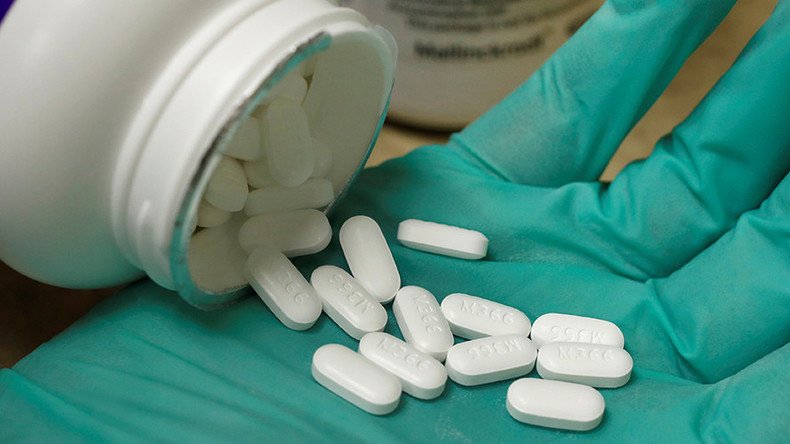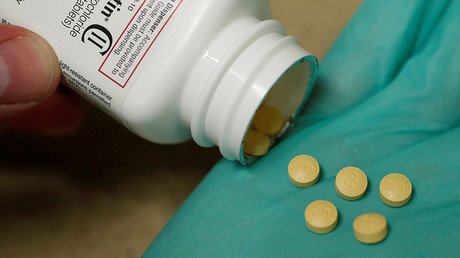FDA to impose tougher doctor-training rules on opioid makers

The Food and Drug Administration will step up efforts to combat America’s opioid epidemic by forcing opioid manufacturers to teach physicians and other health care professionals more about prescribing the addictive medication.
FDA Commissioner Scott Gottlieb delivered the opening remarks for a two-day public meeting on opioid abuse on Monday in Silver Spring, Maryland. He said that the FDA will seek to require the makers of immediate-release opioids give prescriber training to medical professionals who handle the drug.
“America is simply awash in immediate-release opioid products,” Gottlieb said, according to the documents, according to the Washington Post.
These new rules will affect 90 percent of opioids prescribed in the US, including hydrocodone and oxycodone-acetaminophen combinations. Currently, the makers of extended release products, which are only 10 percent of prescribed medication, have mandatory rules which state that they must provide training.
He also said on Monday that the new rules “will be aimed at making sure providers who write prescriptions for the opioids are doing so for properly indicated patients and under appropriate clinical circumstances.”
Currently, doctors are not required to go through any training, but Gottlieb says that he wants to change that.
“Based on the feedback we’ve received from two public meetings over the past year,” he said, “we’re actively exploring the question of whether, in the future, there should be mandatory provider education, and how we’d operationalize such a condition.”
Drugmakers will have to expand the amount of information given to doctors, such as details about non-medication therapies, drug treatments and pain management.
Last week, drug manufacturer Endo Pharmaceuticals agreed to withdraw its opioid Opana ER from US markets, at the request of the FDA. The drug was pulled due to health and abuse concerns. Last month, the FDA called for sales to shut down in the US. It is the first case in which the FDA has asked for a drug to be pulled from the market due to concerns of abuse and misuse.
READ MORE: Historic 1st: FDA calls for opioid to be removed from market based on risk of abuse
Lawsuits in California, which first arose in 2014 against Endo and Purdue Pharma, another drug company, had new legal claims added to their lawsuits. The counties of Santa Clara and Orange claim that the companies “created false impressions” to doctors that certain drugs could “curb addiction and abuse,” with their reformulated pills, according to the Washington Post. The pills were described as being engineered to not turn into gelatin, preventing abusers from heating up the pill to create a liquid for injection. The companies also claimed that the pill was hard to crush, and thus, fewer people could abuse the drug through snorting it.
The agency has stated that it will be examining whether or not it should begin to enforce rules to reduce the amount of 30-day prescriptions written for conditions related to pain, including dental procedures that do not need an entire month’s worth of an opioid drug, according to an FDA document from May entitled “FDA Education Blueprint for Health Care Providers Involved in the Management or Support of Patients with Pain.”













